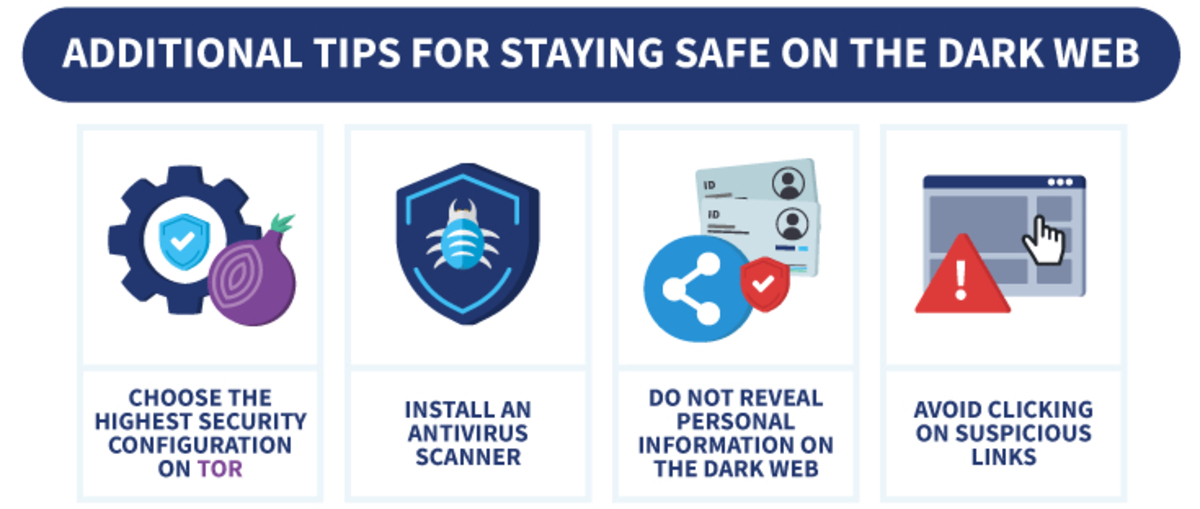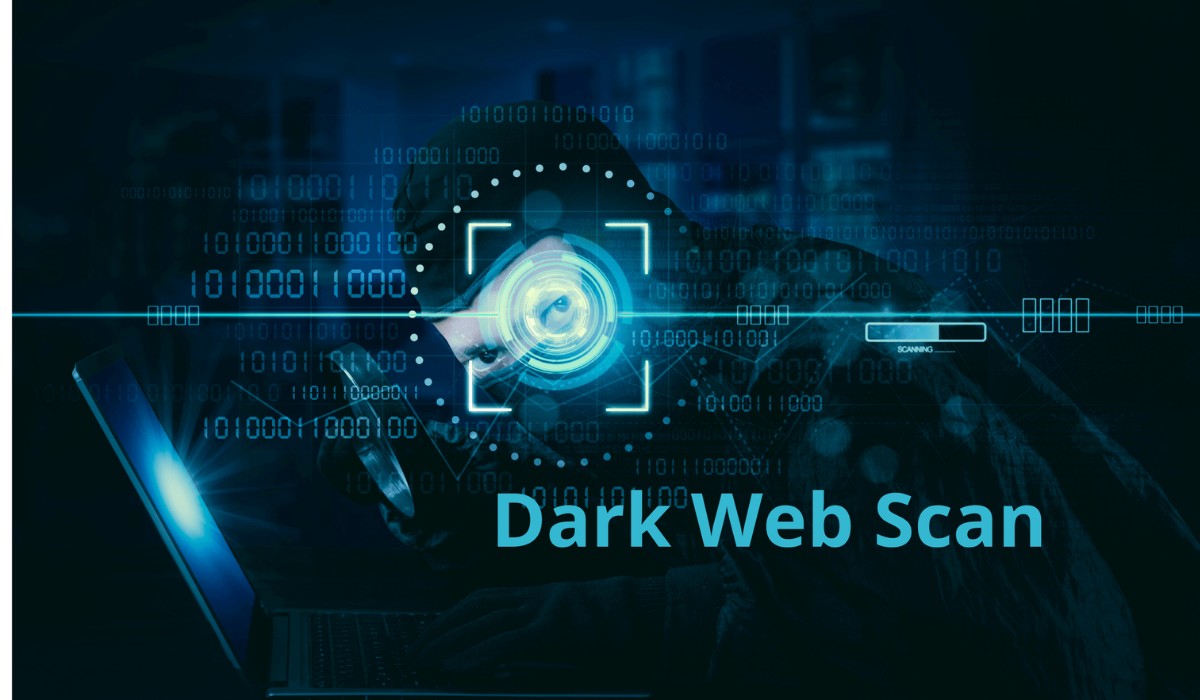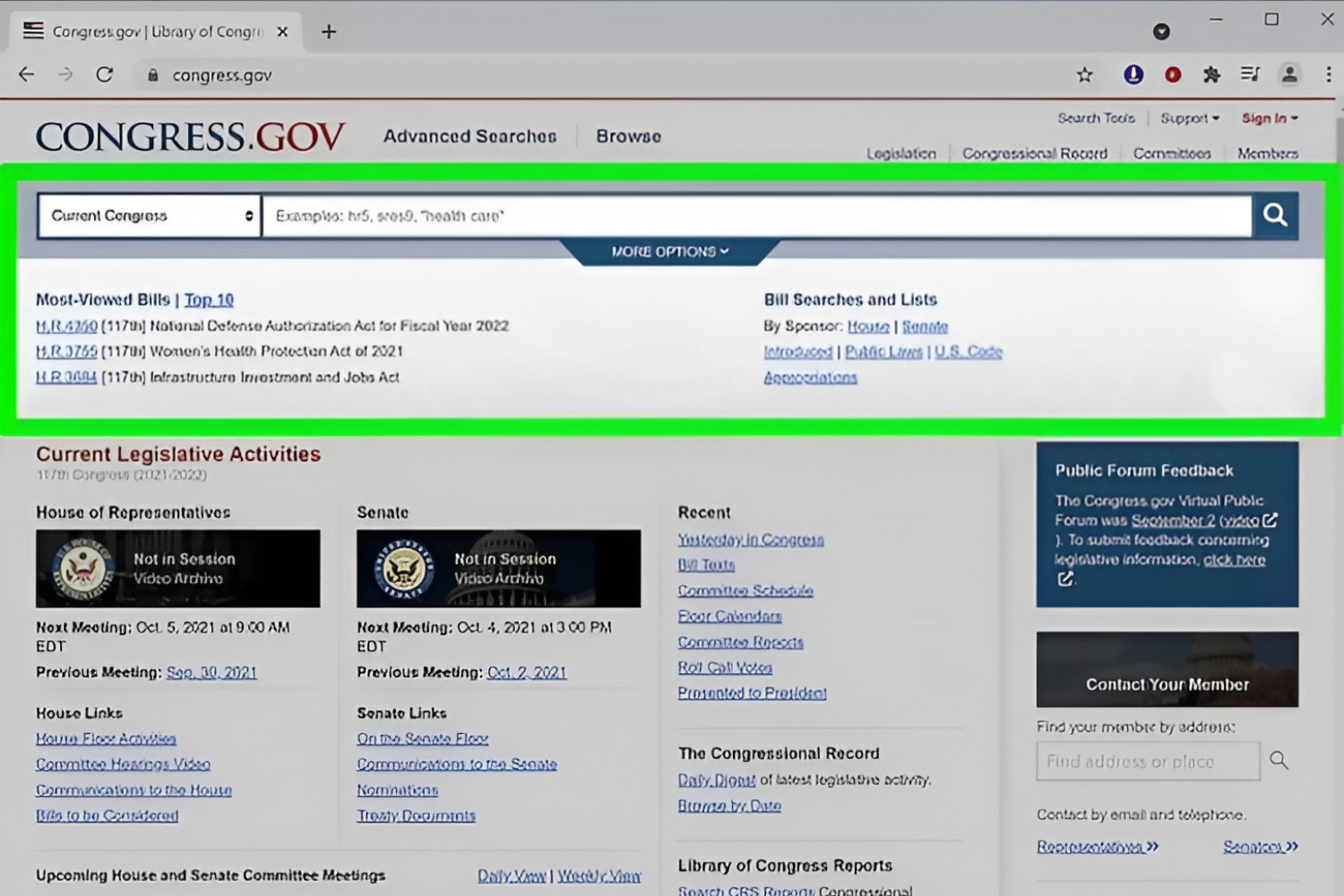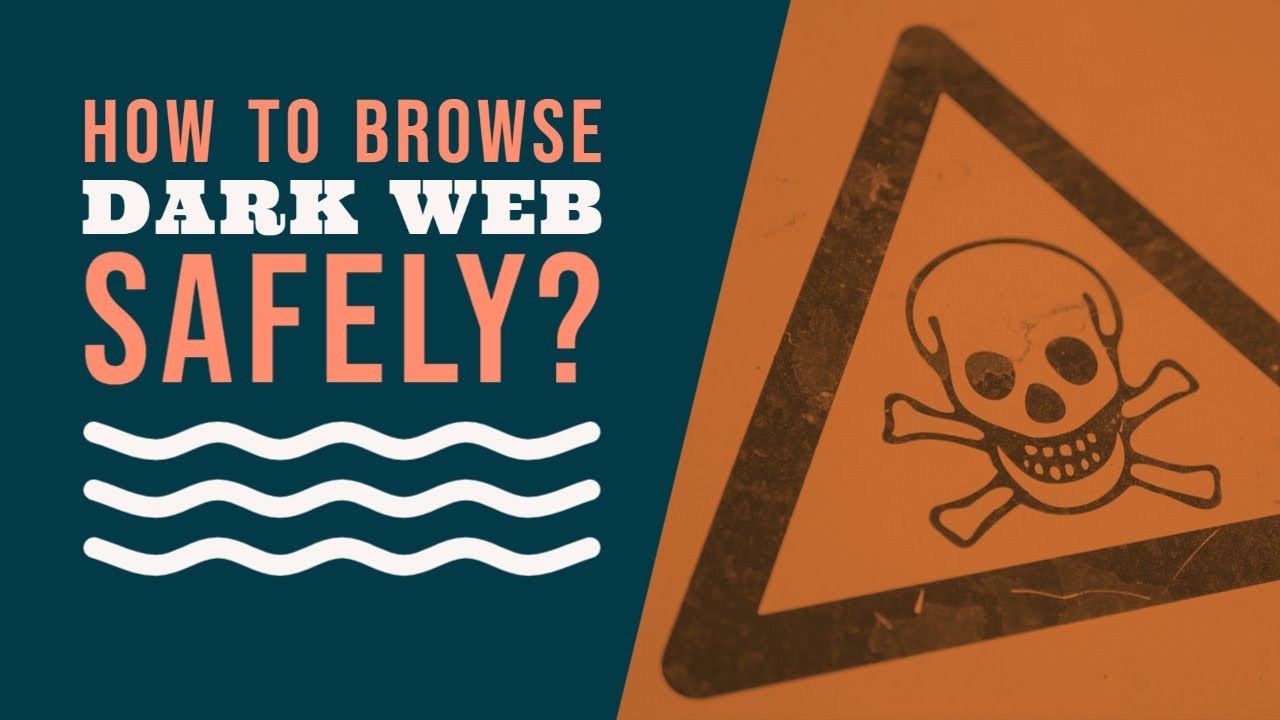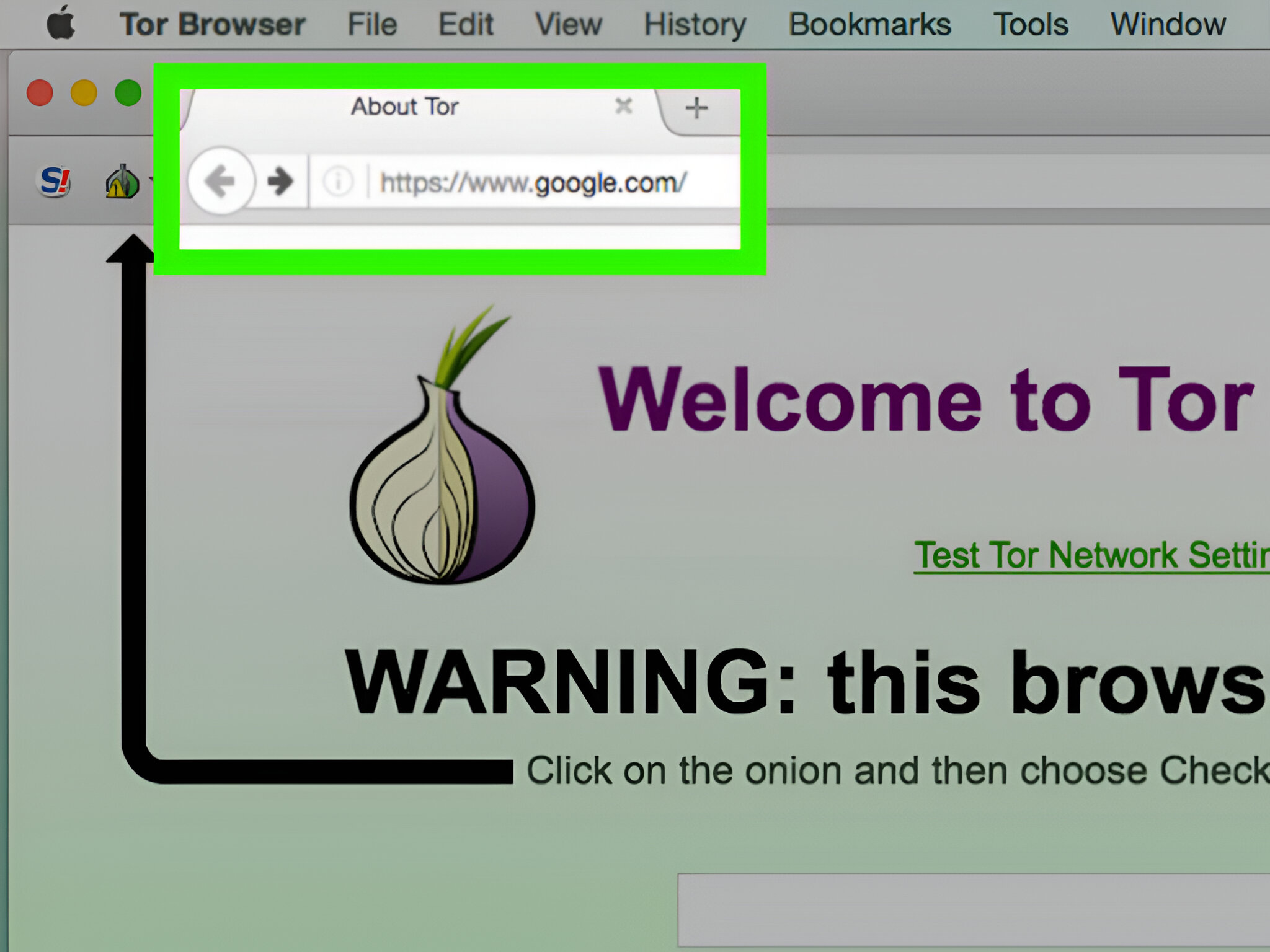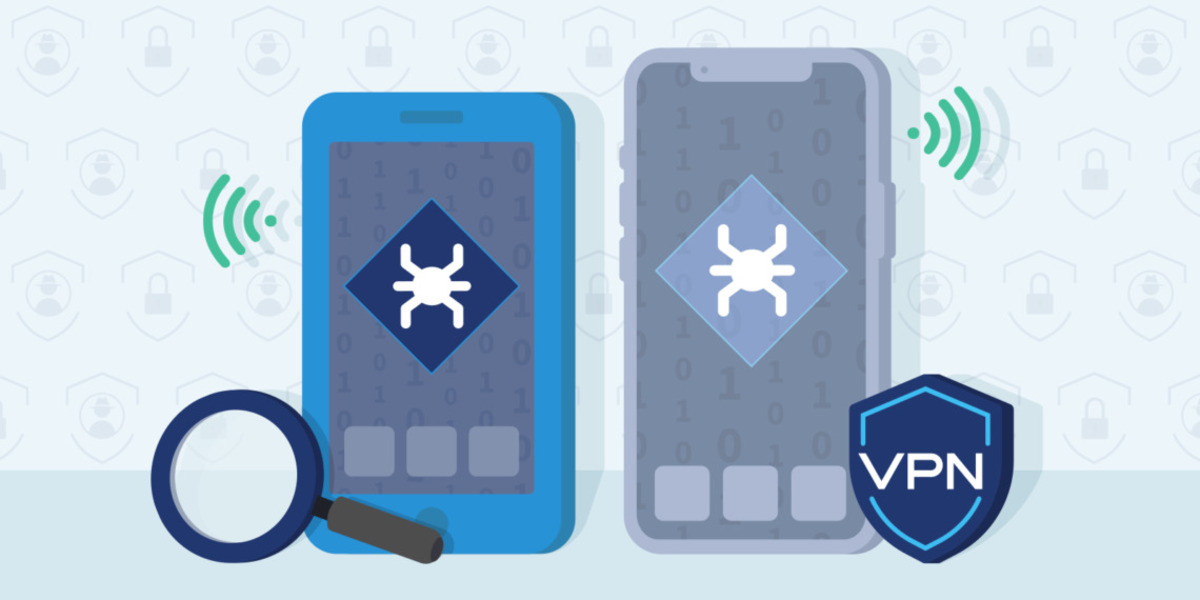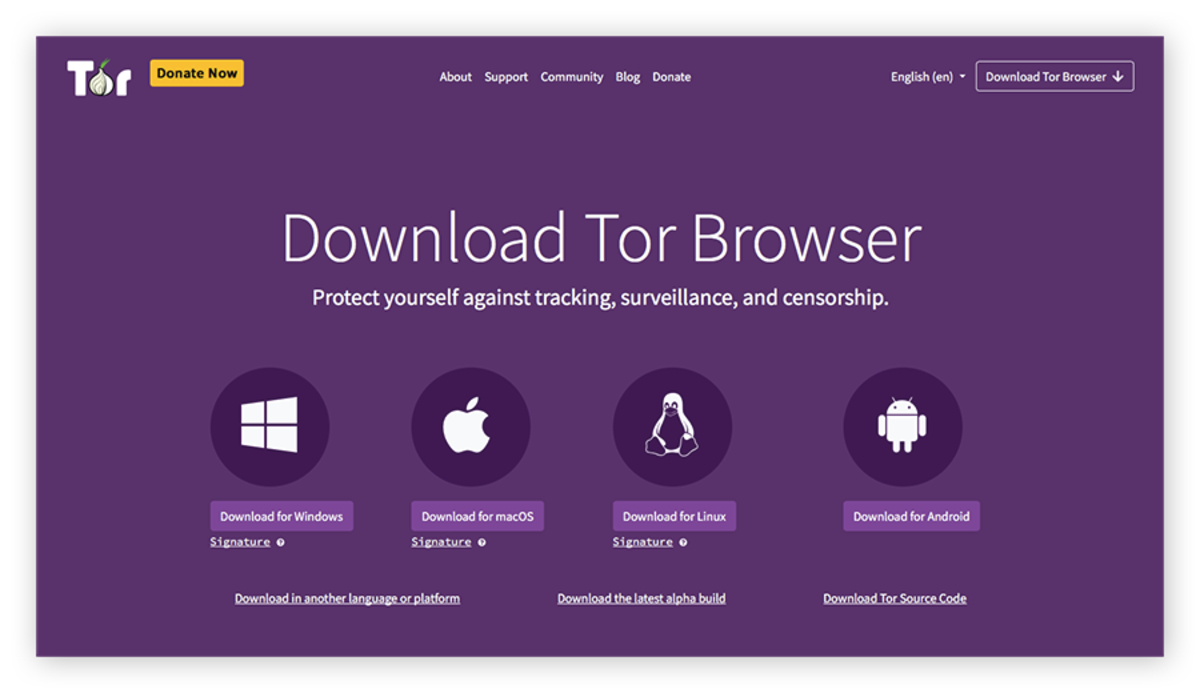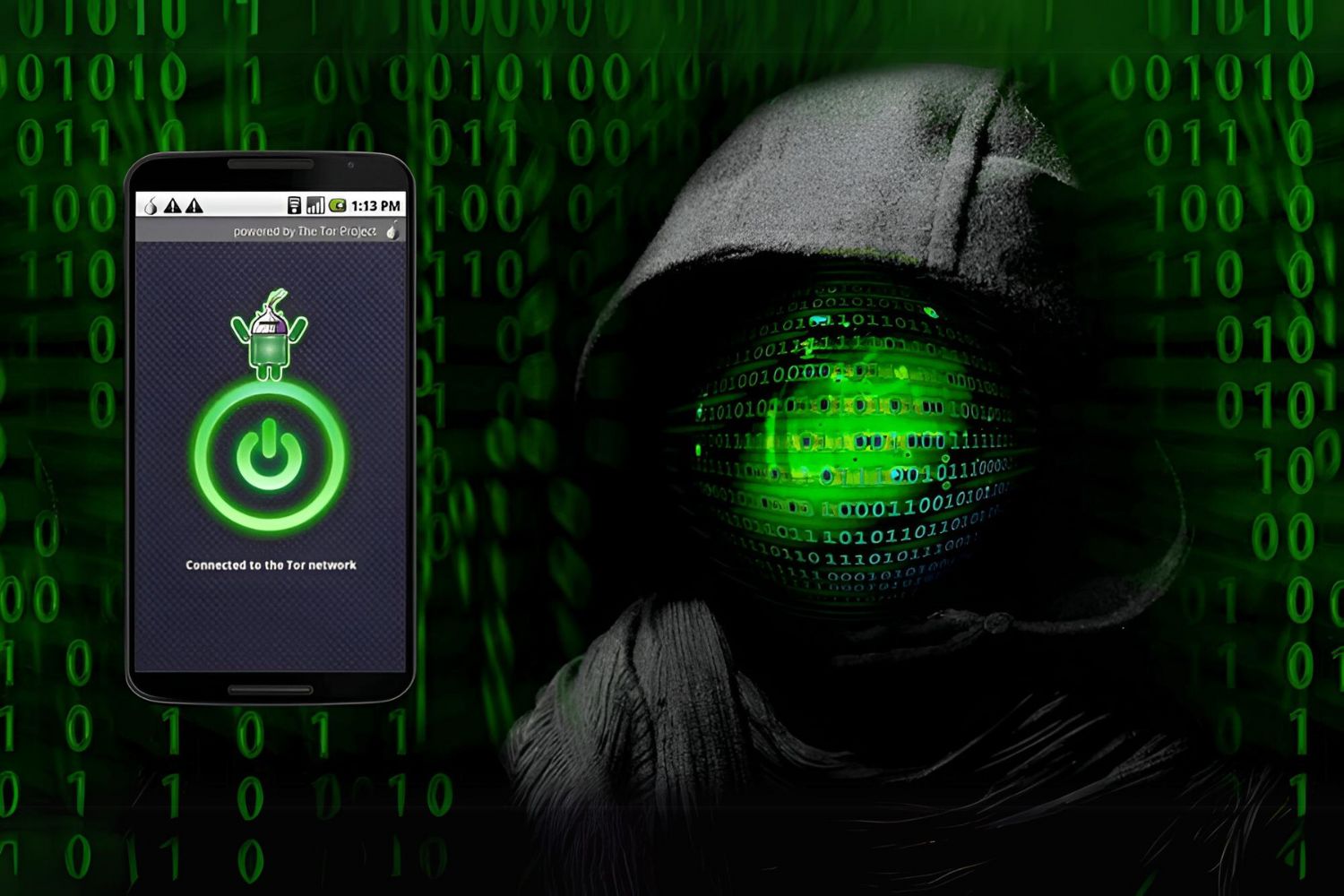Introduction
Welcome to the dark web, a mysterious and intriguing part of the internet that is hidden from traditional search engines. It’s a place where anonymity prevails, and where illegal activities often take place. While the dark web can be a fascinating and valuable resource for certain individuals, it’s important to navigate it safely and responsibly.
In this article, we will explore the dark web and provide you with essential tips and precautions to stay safe while exploring its depths. Whether you’re a journalist conducting undercover research, a cybersecurity enthusiast, or simply curious about this hidden realm, these guidelines will help protect your privacy and keep you out of harm’s way.
While we delve into this topic, it’s crucial to note that the dark web is not inherently malicious. It serves as a platform for various activities, and not all of them are illegal or harmful. However, it’s important to exercise caution and take necessary steps to ensure your safety and protect your personal information.
Now, let’s begin our exploration into the world of the dark web and uncover ways to stay secure while traversing its virtual alleys.
Understanding the Dark Web
The dark web is a hidden portion of the internet that cannot be accessed through traditional search engines like Google or Bing. Instead, it relies on specialized software, such as Tor (The Onion Router), which grants users anonymity by encrypting their internet traffic and bouncing it through multiple layers of servers.
Contrary to popular belief, the dark web is not solely a hub for illegal activities. It also serves as a platform for individuals who value their privacy, whistleblowers exposing corruption, and people living under oppressive regimes seeking uncensored information.
Within the dark web, various online marketplaces exist, offering products and services that may be difficult to find elsewhere. Some examples include niche forums, digital art markets, and platforms for anonymous communication. It’s important to note that while exploring the dark web, you might encounter a range of content, both legal and illegal, so it’s crucial to exercise caution.
To understand the dark web, it’s helpful to conceptualize it as an iceberg. The surface web, which encompasses websites accessible through search engines, is just the tip of the iceberg. Beneath the surface, the deep web includes pages that are not indexed by search engines, such as password-protected websites and private databases. Finally, at the bottom of the iceberg lies the dark web, which requires specialized software to access.
While navigating the dark web, it’s important to refrain from engaging in illegal activities or supporting harmful endeavors. By staying informed and adhering to ethical principles, you can use the dark web responsibly and minimize any potential risks.
Use a Secure and Anonymous Connection
When accessing the dark web, it’s crucial to prioritize your online security and anonymity. One of the first steps you should take is to use a secure and anonymous connection. Here are some important considerations:
Utilize a Virtual Private Network (VPN): A VPN encrypts your internet connection, providing an additional layer of security. It masks your IP address and anonymizes your online activities, making it more challenging for third parties to track your browsing habits. Ensure you choose a reputable VPN service that does not retain logs of your internet activities.
Use the Tor Browser: The Tor Browser is specifically designed to access the dark web anonymously. It routes your internet traffic through multiple servers, making it extremely difficult for anyone to trace your online activities. Remember to always download the Tor Browser from the official website to avoid downloading malicious versions.
Avoid Using Your Personal Information: When accessing the dark web, avoid using personal information or identifiable usernames. Instead, opt for a pseudonym that does not link back to your real-world identity. This helps maintain your anonymity and protects your privacy.
Avoid Public Wi-Fi Networks: Public Wi-Fi networks are notoriously insecure, making them vulnerable to data breaches and surveillance. Whenever possible, connect to the dark web using a trusted and secure internet connection, such as a private home network or a trusted mobile data provider.
Consider Tails OS: Tails is a secure and privacy-focused operating system that can be booted from a USB drive. It routes all internet traffic through the Tor network by default, further enhancing your anonymity and security. Tails is designed to leave no trace on the computer you’re using, making it an excellent option for accessing the dark web securely.
By following these precautions, you can ensure a secure and anonymous connection when exploring the dark web. Remember, your online security should always be a top priority.
Use a VPN (Virtual Private Network)
When venturing into the dark web, one of the crucial steps to maintain your privacy and security is to use a reliable Virtual Private Network (VPN). Here’s why a VPN is vital and how it can protect you:
Protects Your Online Privacy: A VPN encrypts your internet connection, making it virtually impossible for anyone to intercept and decipher your data. By routing your web traffic through a secure server, it shields your online activities from prying eyes, including internet service providers (ISPs), government agencies, and hackers.
Provides Anonymity: A VPN assigns you an alternative IP address, masking your real one and making it difficult for websites and online services to track your location and identity. This helps maintain your anonymity while accessing the dark web, preventing anyone from tracing your activities back to you.
Bypasses Geographic Restrictions: Some websites and online services on the dark web might have geographic restrictions or be blocked in certain regions. With a VPN, you can overcome these barriers by connecting to a server in a different country, allowing you to access content and services that would otherwise be unavailable to you.
Avoids ISP Throttling: Internet Service Providers occasionally impose bandwidth throttling to restrict or slow down certain types of internet traffic. By using a VPN, you can hide your online activities from your ISP, preventing them from selectively slowing down your connection, ensuring a smoother and faster browsing experience on the dark web.
When choosing a VPN for accessing the dark web, consider the following factors:
Strong Encryption: Ensure that the VPN you select uses robust encryption protocols, such as AES 256-bit, to safeguard your data and protect your privacy effectively.
No-Logs Policy: Opt for a VPN service that has a strict no-logs policy, meaning they do not store any records of your online activities. This ensures there is no information that can be traced back to you.
Server Locations: Look for a VPN with a wide range of server locations, including countries where the dark web is popularly accessed. This provides you with more options for secure connections.
Speed and Reliability: Consider a VPN that offers fast and reliable connections, minimizing any browsing delays or interruptions while accessing the dark web.
By using a VPN, you can enhance your privacy, secure your online connections, and navigate the dark web with an additional layer of anonymity and protection.
Employ Strong Passwords and Two-Factor Authentication
When it comes to staying safe on the dark web, one of the fundamental practices is to use strong passwords and enable two-factor authentication (2FA) whenever possible. Here’s why these measures are crucial and how they can protect you:
Strong Passwords: A strong password is your first line of defense against unauthorized access. Use a combination of uppercase and lowercase letters, numbers, and special characters in your passwords. Avoid common phrases or predictable patterns, as hackers often use automated tools to crack weak passwords. It’s important to use a unique password for each online account to prevent a security breach in one account from affecting others.
Two-Factor Authentication (2FA): 2FA adds an extra layer of security to your accounts by requiring an additional verification step beyond your username and password. This can be in the form of a unique code sent to your mobile device, a fingerprint scan, or a hardware token. Even if someone manages to obtain your password, they won’t be able to access your account without the second factor of authentication. Enable 2FA whenever it’s available for your online accounts, including email, social media, and any platforms you use on the dark web.
Here are some tips to effectively manage your passwords and implement 2FA:
Use a Password Manager: A password manager can generate and store strong, unique passwords for each of your accounts. It eliminates the need to remember multiple complex passwords, as the manager securely stores them for you. Ensure you choose a reputable password manager with encryption and multi-factor authentication for an added layer of security.
Regularly Update Your Passwords: Changing your passwords regularly can help prevent unauthorized access to your accounts. Aim to update your passwords every three to six months, or immediately if you suspect a security breach.
Enable 2FA on All Eligible Accounts: Wherever possible, enable two-factor authentication for your accounts. Most online services offer this feature, including email providers, social media platforms, and cryptocurrency platforms used on the dark web. Take advantage of this added security measure to prevent unauthorized access.
Secure Your Backup Codes: Some platforms provide backup codes as an alternative way to access your account if you lose access to your primary 2FA method. Store these codes securely, preferably offline, to prevent them from falling into the wrong hands.
By adopting strong passwords and implementing two-factor authentication, you significantly reduce the risk of unauthorized access to your accounts. These simple yet effective measures can go a long way in safeguarding your personal information and protecting your presence on the dark web.
Keep Your System Updated and Secure
Ensuring the security of your system is crucial when accessing the dark web. By keeping your operating system and software updated, you can protect against potential vulnerabilities that could be exploited by hackers. Here are important practices to keep your system secure:
Install Regular Software Updates: Updates often include security patches that fix vulnerabilities in software or operating systems. Enable automatic updates whenever possible, or regularly check for updates and install them promptly to ensure you have the latest security enhancements.
Use Antivirus and Antimalware Software: Install a reputable antivirus and antimalware program on your device. Regularly scan your system for malware and viruses, and ensure your software is up to date with the latest virus definitions. This helps detect and remove any malicious programs that may compromise your system and personal information.
Enable Firewall Protection: Activate the built-in software firewall on your device or install a trusted third-party firewall application. Firewalls monitor and control incoming and outgoing network traffic, acting as a barrier against unauthorized access and potential threats when connected to the internet.
Secure Your Wi-Fi Network: If you access the dark web using a Wi-Fi network, secure it by enabling WPA2 or WPA3 encryption. Change the default router login credentials, use a strong Wi-Fi password, and consider hiding your network’s SSID (Service Set Identifier) to make it less visible to potential attackers.
Regularly Backup Your Data: Create regular backups of your important data, either on an external hard drive, a cloud storage service, or both. This protects your data in case of hardware failure, accidental deletion, or a security breach. Encrypt your backups for an additional layer of protection.
Be Mindful of Downloads: When downloading files from the dark web or any other source, exercise caution and only download from trusted websites or platforms. Be wary of files with unknown or suspicious file extensions and scan them with your antivirus software before opening them.
Disable Auto-Execution of Files: Configure your system to prompt for action before executing files from external sources, such as USB drives or downloaded files. This prevents potentially malicious files from executing automatically and infecting your system.
By diligently keeping your system updated and implementing these security measures, you can create a robust line of defense against potential threats while accessing the dark web.
Avoid Downloading Suspicious Files
Downloading files from the dark web poses various risks, including the potential for malware, viruses, or other malicious content that can compromise your system and personal information. To stay safe, it’s crucial to exercise caution and avoid downloading suspicious files. Here are essential tips to minimize the risks:
Verify the Source: Before downloading any file, carefully assess the credibility and reputation of the source. Stick to well-known and trusted websites, communities, or marketplaces within the dark web. User reviews and ratings can provide insights into the reliability and safety of files.
Scan Files with Antivirus Software: Prior to opening or executing any downloaded file, scan it with reliable and up-to-date antivirus software. This can help detect and eliminate potential malware or viruses before they can compromise your system.
Avoid Suspicious File Extensions: Be cautious of files with unusual or uncommon file extensions, such as .exe, .bat, .msi, or .jar. These are common file types used to distribute malware. Only download files with extensions that are usually associated with safe and common file formats.
Exercise Restraint with Software and Cracked Programs: Be wary of downloading cracked software or illegally obtained programs from the dark web. These files might contain hidden malware or unauthorized modifications that could compromise your system’s security and privacy.
Use Virtual Machines for Testing Purposes: If you’re unsure about the safety of a particular file, consider running it in a virtual machine. Virtual machines provide a controlled environment where you can test files without risking your main operating system and personal data.
Be Skeptical of Unusual File Sizes: Exercise caution if a file’s size seems unusually large or small compared to what you would expect. It could indicate the presence of compressed malware or other suspicious content.
Trust Your Instincts: Use your instincts and common sense when evaluating whether to download a file. If something feels suspicious or too good to be true, it’s usually best to err on the side of caution and avoid downloading it.
Remember, downloading files from the dark web always carries a certain level of risk. It’s essential to remain vigilant, trust reliable sources, and leverage security measures like antivirus software to protect yourself from potential threats.
Be Cautious of Phishing Scams
Phishing scams are a common tactic used by cybercriminals to deceive users and steal their sensitive information. When exploring the dark web, it’s crucial to remain vigilant and be cautious of phishing scams. Here are important precautions to protect yourself:
Verify Website URLs: Double-check website URLs to ensure they are legitimate and secure. Cybercriminals often create phishing websites that mimic popular platforms to trick users into entering their login credentials or personal information.
Avoid Clicking Suspicious Links: Be wary of clicking on links that arrive unexpectedly or from unknown sources. Phishing emails, messages, or forum posts may contain malicious links designed to compromise your system or collect your personal information.
Scrutinize Email Attachments: Exercise caution when opening email attachments, as they can contain malware or ransomware. Be particularly wary of executable files (e.g., .exe or .bat) or files with unusual extensions (.zip or .rar) from unknown senders.
Keep Your Antivirus Updated: Maintain up-to-date antivirus and antimalware software to detect and block phishing attempts. Regularly update virus definitions to ensure protection against the latest threats.
Enable Email Filtering: Activate spam and phishing filters in your email service provider. This can help prevent phishing emails from reaching your inbox, as they are often flagged and filtered automatically.
Be Mindful of Personal Information Requests: Be cautious of websites or individuals that request your personal information, especially financial details or login credentials. Legitimate entities rarely ask for sensitive information through email or other unsecured channels.
Trust your instincts: If something feels suspicious or too good to be true, trust your instincts and exercise caution. Phishing scams often rely on urgency, fear, or enticing offers to manipulate users into divulging sensitive information.
Stay Informed: Regularly educate yourself about the latest phishing techniques and scams. Cybercriminals evolve their tactics, so staying up-to-date with current trends and techniques can help you recognize and avoid potential phishing attempts.
By being diligent and cautious, you can minimize the risk of falling victim to phishing scams while exploring the dark web. Remember, it’s better to err on the side of caution and verify the authenticity of a website or communication before sharing any personal information.
Beware of Illegal Activities and Reporting
While the dark web offers anonymity and a certain level of privacy, it’s crucial to be aware of the presence of illegal activities that may occur within its depths. While not everything on the dark web is illicit, it’s important to avoid engaging in or supporting any illegal activities. Here are important considerations:
Know the Laws: Familiarize yourself with the laws in your jurisdiction regarding the activities that take place on the dark web. Understand what is legal and what is illegal. Ignorance of the law is not an excuse for engaging in illicit activities.
Avoid Illegal Marketplaces: Stay away from illegal marketplaces that sell drugs, stolen personal data, counterfeit goods, or other illicit items. Engaging in such transactions not only puts you at risk legally but also contributes to the growth of criminal networks.
Report Illegal Activities: If you come across any illegal activities on the dark web, consider reporting them to the relevant authorities. Use your discretion and judgment when deciding whether to report, ensuring you have valid and concrete evidence to support your claims.
Protect Your Anonymity: When reporting illegal activities, take measures to protect your anonymity. Use tools like the Tor network and avoid revealing personal information that may identify you to potential threat actors.
Use Ethical Dilemma and Responsibility: Be mindful of ethical considerations and the potential repercussions of your actions. Engaging in or supporting illegal activities can have serious consequences, both legally and ethically.
Focus on Legal and Ethical Content: Instead of being drawn to the illegal aspects of the dark web, focus on legal and ethical content. There are communities and platforms that provide valuable information, promote freedom of speech, and support privacy in legitimate and lawful ways.
Remember, while the dark web may seem intriguing, it’s important to prioritize legality and ethical conduct. Engaging in illegal activities can have severe consequences and may lead to legal trouble. By being responsible and mindful of the law, you can maintain your integrity while exploring the hidden corners of the internet.
Use Bitcoin or Cryptocurrency for Transactions
When conducting transactions on the dark web, the use of Bitcoin or other cryptocurrencies can provide an added layer of privacy and security. Here’s why using cryptocurrency is beneficial and how it can protect your identity:
Enhanced Anonymity: Cryptocurrencies offer a certain level of anonymity, as they do not require you to disclose personal information when making transactions. Instead, transactions are pseudonymous, identified by wallet addresses rather than real names.
Decentralization and Security: Cryptocurrency transactions operate on a decentralized network, making it difficult for any single entity to control or manipulate transactions. This decentralized nature, combined with advanced cryptography, ensures a high level of security for your transactions.
Pseudonymity: By using cryptocurrency, you can avoid associating your real-world identity with the transactions you make on the dark web. It adds an extra layer of protection, minimizing the risk of your personal information falling into the wrong hands.
Access to Dark Web Marketplaces: Many dark web marketplaces exclusively use cryptocurrencies for their transactions. By familiarizing yourself with Bitcoin or other accepted cryptocurrencies, you can access these marketplaces and participate in secure and private transactions.
When using cryptocurrency on the dark web, it’s essential to keep the following tips in mind:
Secure Your Wallet: Choose a reputable and secure cryptocurrency wallet to store your digital currency. Use a strong password and enable two-factor authentication to protect your wallet from unauthorized access.
Research Before Transacting: Before conducting any transaction, thoroughly research the reputation and reviews of the seller or service provider. Look for trusted and verified vendors to minimize the risk of scams or fraudulent activities.
Ensure Secure Communication: When engaging in discussions or negotiations related to transactions, use secure and encrypted communication channels to protect your privacy and sensitive information. Encrypt your messages, use anonymous messaging platforms, or utilize encrypted email services.
Stay Updated on Cryptocurrency News: Keep abreast of the latest news and developments in the cryptocurrency world to stay informed about potential security risks, scam techniques, and best practices for secure transactions.
By using Bitcoin or other cryptocurrencies for transactions, you can enjoy increased privacy, security, and anonymity on the dark web. However, it’s important to stay vigilant, exercise caution, and be mindful of the reputation and trustworthiness of the parties involved in your transactions.
Navigate Wisely and Verify Sources
Navigation and source verification are essential skills when exploring the dark web. Due to its anonymity and the potential presence of malicious actors, it’s crucial to navigate wisely and verify the sources of information. Here are important guidelines to help you navigate the dark web more safely:
Exercise Caution: Take the time to understand the layout and structure of the dark web before diving into unfamiliar areas. Be mindful of where you click and what you access, as certain links or websites may lead to malicious or illegal content.
Use Reliable Directories and Forums: Utilize trusted directories and forums specific to the dark web to find reputable and reliable websites or platforms. These resources can provide curated lists of websites and verified vendors, minimizing the risk of running into malicious actors or scams.
Verify Sources: Before relying on any information found on the dark web, always verify the credibility and accuracy of the sources. Cross-reference information from multiple sources to ensure reliability. Due to the anonymous nature of the dark web, misinformation and intentional deception are not uncommon.
Be Cautious of Deep Web Links: Deep web links (non-indexed web pages) shared on the dark web may lead to content that is illegal, malicious, or potentially harmful. Exercise discretion when accessing such links and verify their credibility before proceeding.
Use Secure Communication Channels: When engaging in conversations or sharing sensitive information on the dark web, prioritize secure and encrypted communication channels. Utilize anonymous messaging platforms or encrypted email services to protect your privacy.
Be Skeptical of Claims: Keep in mind that the dark web is notorious for sensationalized claims and misinformation. Approach all information with a healthy dose of skepticism and verify claims through reliable and trustworthy sources.
Avoid Illegal Activities: While exploring the dark web, it’s crucial to understand that engaging in illegal activities is both unethical and potentially punishable by law. Refrain from participating in or supporting any illegal activities, as it can have severe consequences.
Protect Your Personal Information: Whenever possible, minimize the personal information you provide on the dark web. Avoid disclosing unnecessary details that could potentially compromise your identity or increase your vulnerability to cyber threats.
By navigating wisely and verifying sources, you can reduce the risks associated with exploring the dark web. Remember to prioritize your safety, conduct proper due diligence, and exercise caution when interacting with websites, platforms, or individuals.
Be Mindful of Personal Information and Anonymity
Protecting your personal information and maintaining anonymity is of utmost importance when traversing the dark web. Given its nature and potential risks, being mindful of the data you share and your level of anonymity can significantly enhance your security. Here are key practices to keep in mind:
Minimize Personal Information: Limit the amount of personal information you provide on the dark web. Avoid sharing unnecessary details such as your real name, address, phone number, or social security number. The less personal information you reveal, the lower the risk of exposing your identity.
Use an Anonymous Identity: Consider creating a pseudonymous identity to use on the dark web. Use a username that does not link back to your real-world identity, making it difficult for others to trace your online activities back to you.
Create Strong, Unique Passwords: Use strong and unique passwords for all of your accounts, including any dark web platforms you engage with. Make sure to use a combination of uppercase and lowercase letters, numbers, and special characters to maximize the security of your accounts.
Employ Two-Factor Authentication (2FA): Enable two-factor authentication whenever possible to add an extra layer of security to your accounts. This ensures that even if your password is compromised, an additional verification step is required to access your account.
Use Encrypted Messaging: Utilize encrypted messaging services or platforms that prioritize user privacy and data encryption. This adds an extra layer of protection to your communications, preventing any potential interception or surveillance.
Secure Your Devices: Protect the devices you use to access the dark web. Use strong passcodes or biometric authentication, enable full disk encryption, and keep your operating system and security software up to date. Regularly scan your devices for malware or other potential security threats.
Use Virtual Machines or Live USBs: Consider using virtual machines or bootable live USBs when accessing the dark web. These tools allow for a more isolated and secure browsing session, minimizing the risk of malware or malicious software infecting your main system.
Be Aware of Metadata: Be cautious about inadvertently sharing metadata that could reveal your identity. This includes details embedded in images, documents, or files you upload or share on the dark web. Scrub metadata before sharing, or consider using tools to anonymize or remove it entirely.
Regularly Monitor and Update Your Online Footprint: Routinely review your online presence and take steps to reduce your digital footprint. Delete or deactivate unnecessary accounts, remove personal details from public platforms, and be mindful of the information you share on social media.
By being mindful of your personal information and prioritizing anonymity, you can reduce the risk of exposing your identity and enhance your overall security when exploring the dark web.
Conclusion
Exploring the dark web can be a fascinating and eye-opening experience, but it comes with its own set of risks and challenges. By following the guidelines outlined in this article, you can navigate the dark web more safely and protect your privacy and security.
Remember to use a secure and anonymous connection, such as a VPN and the Tor browser, to protect your identity and encrypt your internet traffic. Use strong passwords and enable two-factor authentication to safeguard your accounts. Keep your system updated and secure, using antivirus software, firewalls, and secure Wi-Fi networks.
Avoid downloading suspicious files, be cautious of phishing scams, and report any illegal activities you encounter. Use cryptocurrencies like Bitcoin for transactions to enhance your privacy and security. Navigate wisely, verify sources, and be mindful of the information you share and your level of anonymity.
Lastly, always prioritize your safety and ethical responsibility when exploring the dark web. Be aware of the potential risks, legal implications, and the potential for encountering malicious actors. Stay informed, exercise caution, and conduct thorough research before engaging in any activities.
By taking these precautions and maintaining a vigilant mindset, you can unlock the benefits of the dark web while minimizing the potential risks. Enjoy responsibly exploring this hidden realm of the internet while keeping your personal information and security intact.







